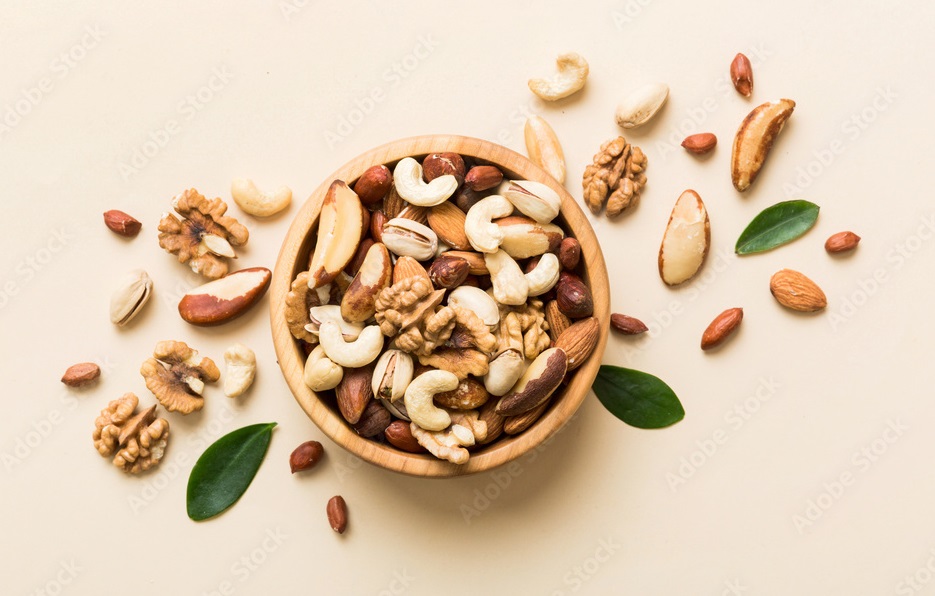When it comes to protein, eggs are often the go-to option, boasting about 6 grams of protein each. However, did you know that some nuts can actually offer more protein than an egg? These tasty little powerhouses not only provide essential protein but also come packed with healthy fats, fiber, and a range of vital nutrients. Let’s explore some nuts that surpass the protein content of an egg and discover how you can incorporate them into your daily diet with tips from a dietitian.
1. Peanuts
Protein Content: Around 7 grams per ounce
Peanuts might surprise you with their high protein content. Though technically legumes, they are commonly treated as nuts and are an excellent source of plant-based protein. Besides protein, they offer healthy fats and a good amount of fiber, making them a great snack choice.
Dietitian’s Tip: “A handful of peanuts can be a satisfying snack. For breakfast, spread some peanut butter on whole-grain toast or add it to your smoothie for an extra protein punch.”
2. Almonds
Protein Content: About 6 grams per ounce
Almonds are not only delicious but also packed with protein and antioxidants, particularly vitamin E, which benefits your skin and immune system. They make for a crunchy, satisfying snack and can easily be added to a variety of dishes.
Dietitian’s Tip: “Top your morning oatmeal or yogurt with sliced almonds. They add a lovely crunch and boost the protein content.”
3. Pistachios
Protein Content: Approximately 6 grams per ounce
Pistachios, with their vibrant green hue and subtly sweet flavor, are a joy to eat. They are loaded with protein, fiber, and essential nutrients, making them a nutritious and tasty choice.
Dietitian’s Tip: “Enjoy pistachios straight out of the shell for a mindful snack. They also work wonderfully in salads or baked goods.”
4. Cashews
Protein Content: Around 5 grams per ounce
Cashews might slightly fall short of the protein content of an egg, but they are still a valuable source of protein and healthy fats. They are also rich in magnesium, which supports muscle and nerve function.
Dietitian’s Tip: “Blend cashews into creamy sauces or add them to stir-fries for a rich, nutty flavor and a protein boost.”
5. Walnuts
Protein Content: Approximately 4.5 grams per ounce
Walnuts are renowned for their high omega-3 fatty acid content, which is excellent for heart health. They also provide a decent amount of protein, making them a nutritious addition to your meals.
Dietitian’s Tip: “Toss walnuts into your salads, cereals, or enjoy them as a snack. Their unique flavor and health benefits make them a great choice.”
How to Enjoy More Nuts in Your Diet?
Power-Packed Breakfasts
Start your day on a high note by adding nuts to your oatmeal, yogurt, or smoothies. This not only boosts the protein content but also provides a delightful texture and extra nutrients.
Smart Snacking
Keep a small container of mixed nuts at your desk or in your bag for a convenient, protein-rich snack that keeps you energized throughout the day.
Nut-Enhanced Meals
Sprinkle nuts over salads, incorporate them into grain bowls, or use nut-based sauces and butters to elevate the protein content and flavor of your meals.
Conclusion:
Adding nuts to your diet is a simple and tasty way to boost your protein intake, often surpassing the protein content of an egg. These nutrient-dense delights offer numerous health benefits, from improved heart health to enhanced muscle function. With these tips and recommendations from a dietitian, you can easily include these protein-rich nuts in your meals and snacks, enjoying a balanced and nutritious diet.
Note: Be mindful of portion sizes, as nuts are calorie-dense. A typical serving size is about one ounce, or a small handful, to enjoy their benefits without overindulging.
Also Read:
